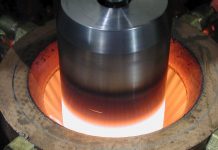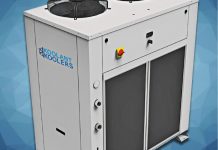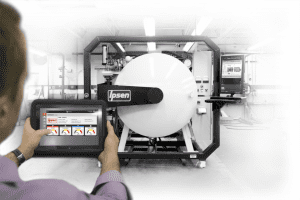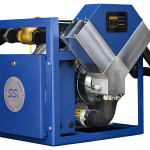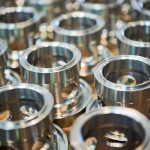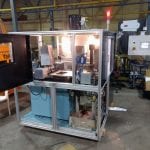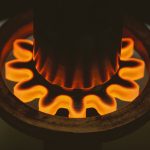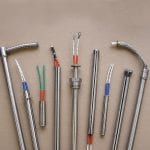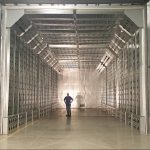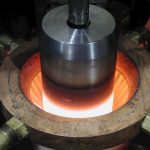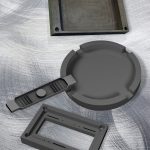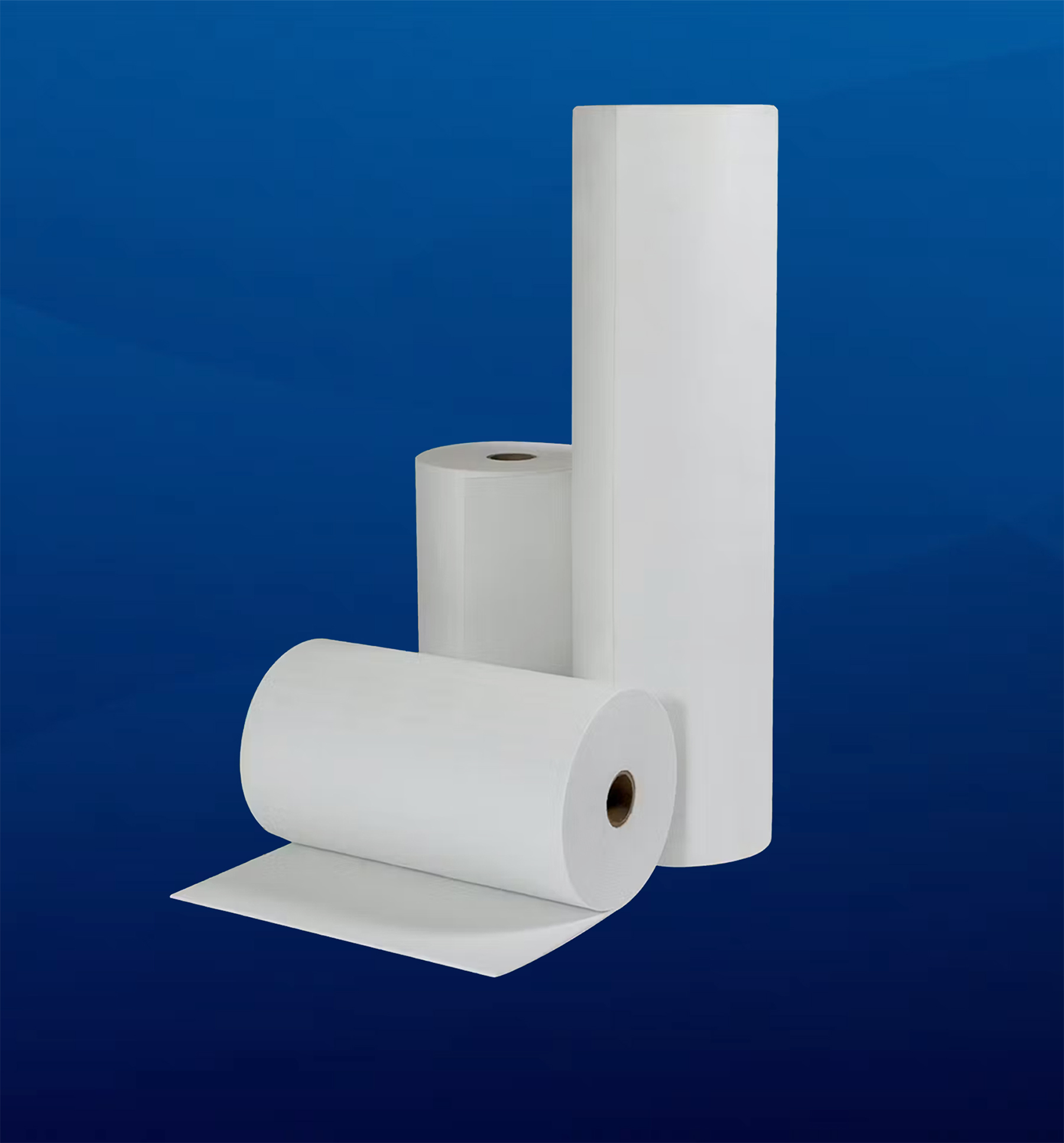Die casting is an important production process for many different industries, and the alloys used to manufacture these permanent dies must be durable and heat resistant.
Astaras and its sister company, Weldstone, have been selling customized tungsten and tungsten alloys used in welding, die casting, and other processes for more than 20 years, which means the company touches a lot of different industries, including heat treating. The mentioned metals are sintered at very high temperatures up to 2,500°C. This necessitates tungsten-equipped furnaces, which Astaras and Weldstone can produce and provide.
Heat-resistant alloys
“In the aluminum die-casting industry, our products are used as core pins, inserts, and sprue bushes,” said Jim Brown, Astaras’ senior sales representative for tungsten heavy alloys. “Our material holds up well in the heat. Tungsten has the highest melting point of any metal. There’s no furnace that I know that’s made where you can put tungsten in and melt it. It’s a powder metallurgically produced material. What they do is they take the tungsten ore, and they chemically process it to very high purity and then reduce it into a very fine metal powder, almost like baby powder, and then they take this powder, and they mix it with two, sometimes three, different other binders like nickel, iron, copper, and molybdenum. Then they press the part into a near-net shape, and it’s put into a tungsten-lined sintering oven. That oven bakes the product, and those other materials bind the heavy alloy together. It’s then machined into the product you need.”
The same size piece of tungsten alloy with the same dimensions of a steel piece is going to weigh more than double, according to Brown.
“It’s going to weigh two to three times more, so the same weight fits into smaller spaces,” he said. “It’s used in weights; it’s used in radiation shielding, including medical and security uses, instead of lead. It’s safer for the environment, and it’s a better shielding than lead. And they are used as vibration-damping toolholders in the machining industry because they don’t have as much bending due to their high stiffness.”
And when it comes to aluminum die casting, issues can be avoided, which can be a problem with tool steel, according to Brown.
“If you have a core pin of tool steel and you have a core pin of Anviloy® tungsten, the core pin of Anviloy tungsten actually helps the product cool faster, and it lasts longer,” he said. If you’re punching out casting aluminum engine blocks, an extra two seconds per engine block means a lot of cost saving and capacity increase in the long run, and our product gives you that. The heavy alloy costs more, but it effectively saves you money in the long run. It’s going to be mainly used where melted aluminum is poured into a die cast or a mold.”

3D product, Conformal Cooling
Astaras is always in search of ways to improve its processes and strive for new and innovative solutions to offer its customers, according to Brown.
“We’ve proven that with one of our products called Anviloy 3D,” he said. “A lot of people talk about 3D printing, but it is difficult and expensive to 3D print alloys. And there’s an issue with porosity in that process. We have come up with what we call ‘conformal cooling’ inside a piece of solid Anviloy tungsten metal. Die casters want these cooling channels because the products should be cooled as quickly as possible so that the properties of the cast part improve, and the die casters can break it out earlier from the mold and make another part.”
There are many industrial products such as combustion chamber inserts used to manufacture multi-cylinder engines (not engines, but cylinder heads) made with low-pressure die casting (LPDC) that take advantage of these properties. In high-pressure die casting (HPDC) of thin-walled structural parts, there is an area in the gate that must be particularly resistant because it receives all the heat of the molten aluminum. At the same time, there is a large node of solid metal there. The node is called a biscuit, and it takes the longest to solidify because the large amount of aluminum must solidify before the mold can be opened. Astaras’ process can cool faster; the die can open faster, and the cycle time can be reduced, which lowers costs and increases capacity, according to Brown.
“Most of these chambers are two at the bottom and two at the top where they have these channels that go through with fluid,” he said. “They are all in one line on the bottom. Our product uses only two holes with the tungsten heavy alloy, but it also has cooling chambers inside of it. The fluid enters in the top, swirls through the chambers, and exits at the bottom — or however the customer wants the product designed. We do conformal cooling, which means we put the cooling channels homogeneously distributed through the part and close to the surface to provide high and homogeneous cooling.”
This material ends up having four times the thermal conductivity than that of other products, according to Brown, which means, the quicker aluminum parts can be produced and cooled, more can be made.
“In the die-casting world, time is money,” he said.
And to add to Astaras’ impressive list of product accomplishments, there is an Anviloy welding rod for wear enhancement and repair that can be used not only on tool steel, but also on Astaras’ own tungsten materials, Brown said.
“If you have a part of a die that’s wearing out, you can take our Anviloy weld rod and repair it,” he said. “It’s going to last a lot longer than regular steel welding — I mean a lot longer. Of course, it doesn’t get affected by heat like steel does. Our cooling rates, our wear resistance, our products last longer. Those are the ways that we have become innovators in the industry as it changes. You’ll see now how more companies are using more aluminum in their automotive products. We’re becoming ingrained with those innovative leaders because they see what we can do.”

Expert advice available
In order to work with a rising list of customers, it’s important that Astaras has the expertise to back up its products as well as being able to offer those potential customers the right advice moving forward, according to Brown.
“We have a technical scientific and engineering team in Germany that help us with that,” he said. “The expert who came up with conformal cooling solution, if you tell him your problem, he can help you figure out a better way to do it. He’s not going to tell you, ‘This is what you need to do,’ but ‘These are some things that you might look at,’ and let them make that choice; 99 percent of the time, they’re going to use our product because they see the benefits of it. We’ve actually done some tests with some companies and colleges where they use our product, and those products are just performing really well. Some of them now are hitting the marketplace after many years of testing. We work with universities; we work with manufacturers and their teams and with our teams, and we come up with different ways to find success.”
Weldstone tungsten alloys available through Astaras also keep production changeover problems to a minimum, especially when working with aluminum, according to Brown.
“They’re much better than the old tool steel that they’re using now — you’ll see this as time goes on,” he said. “People try to figure out how to save time. When you have a die that goes down, you have to stop production. When they stop production at a major motor manufacturer, they’re not happy. They’ve got to stop and change. They have some backup dies, but they still have to stop the production to put new dies in there. Our Anviloy products help with that because they last longer. We haven’t had any failures that I know of.”
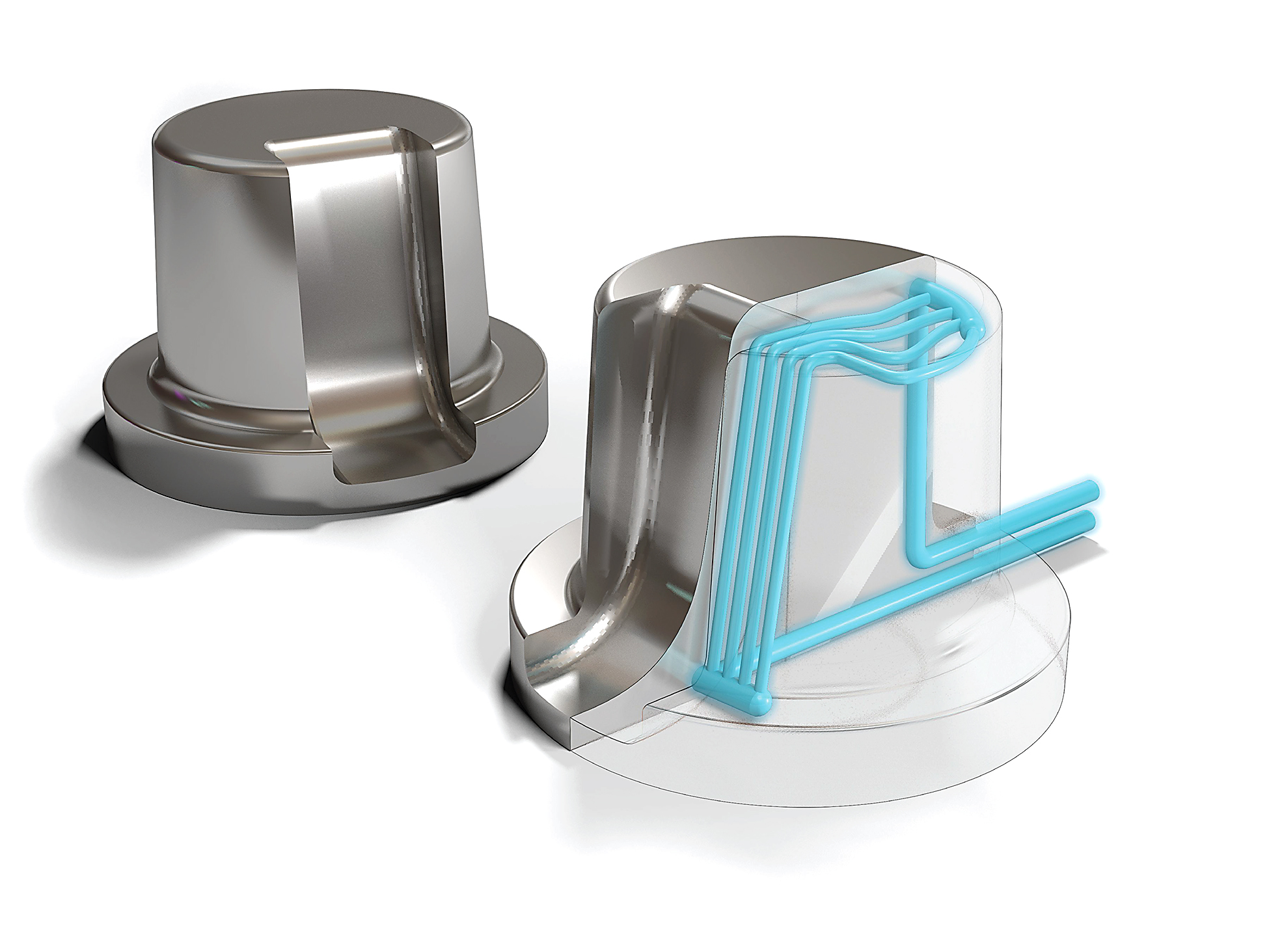
Serving many industries
That longevity is what makes Astaras’ catalog of alloys appealing to many industries, according to Brown. The medical field uses it as radiation shielding, and in the oil and gas sector, it aids in the search for oil deposits.
“You can pinpoint where you’re sending your beam of radiation; if someone has a brain tumor or something like that, they don’t want the radiation beam to go everywhere; they want to pinpoint that tumor, so that’s what our products do,” he said. “And they’re safer for the environment. They’re used in aerospace for vibration dampening for helicopter rotors. They’re used for airplane wings to dampen vibrations from a fluttering wing. They’re also used in engine turbines as a stabilizer, so the engine won’t get out of balance. It’s a weight. Like I said, since it’s two to three times denser than steel, a smaller piece of metal will fit in a spot and still give you the same weight. We work with all of those folks, but mainly the big industry that we see innovations in, is going to be automotive — especially in North America.”
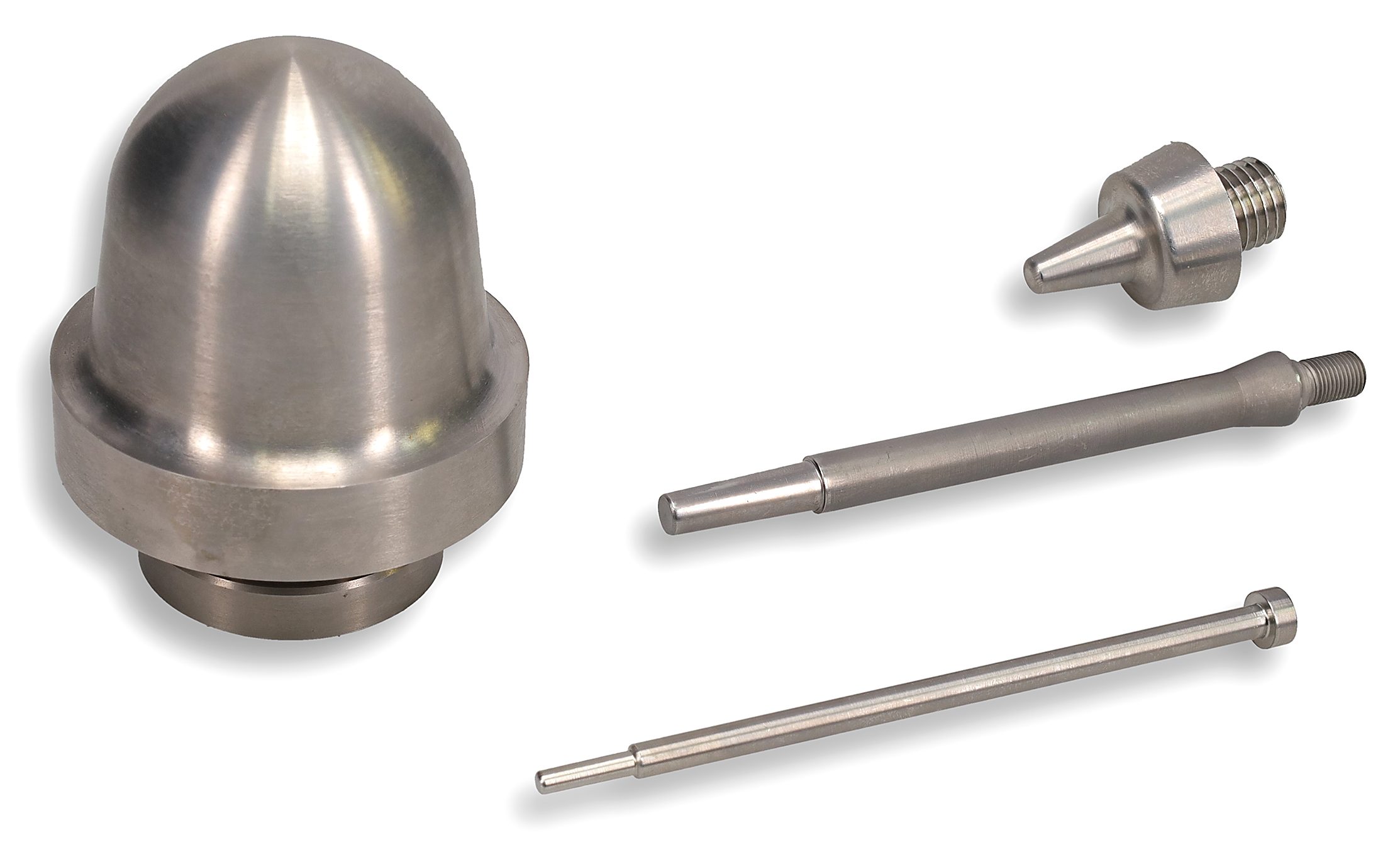
Florida roots
With the help of the IBG Group, Astaras first opened its doors in 2000 in Largo, Florida, with a focus on delivering OEM-quality private label (store brand) MIG guns and consumables, as well as TIG torches and carbon electrodes for the North American welding industry.
Astaras, owned by the IBG Group based out of Cologne, Germany, soon started a heavy alloys division and began selling Anviloy tungsten and Tucomet® tungsten copper alloys in North America, which are the company’s brands for its tungsten heavy alloy and tungsten copper products. The IBG Group is a family-owned business with more than 2,500 employees worldwide. It also has 75 subsidiaries and affiliated companies in 38 different countries.
Astaras’ European counterpart, Weldstone, is one of the world’s largest leaders of tungsten and tungsten-based products, which includes tungsten heavy metal, tungsten copper, and tungsten special alloys.
The powder used for the company’s heavy alloy and welding products comes from Astaras’ Chinese counterpart, Shandong Weldstone, a powder-production facility in Zibo, China, owned by the IBG Group, according to Brown.
“That’s where all of our heavy alloy products come from,” he said. “We control our powder, whereas a lot of companies don’t. Other companies buy their powder. We make our own powder, so we can control the process very well.”

Eyes on what’s next
Astaras and its various sister and parent companies have carved out an important niche in supplying industries with quality tungsten alloy products that will continue to serve the market well into the future. Brown pointed out that the next important point on the horizon will be the EV industry, and he emphasized Astaras will be front and center and ready to serve its needs.
“As I mentioned, the automotive side is going to be a big area to grow in because of the renewable energy push when it comes to lighter cars, and that’s where we’re innovative,” he said. “We’re not just a sales organization; we’re a problem solver, and we work with some of the largest automotive manu-facturers in the world with our products. Anytime they have an issue, we’ve gone in and helped them fix these things, and they stay with us.”
MORE INFO www.anviloy.com










